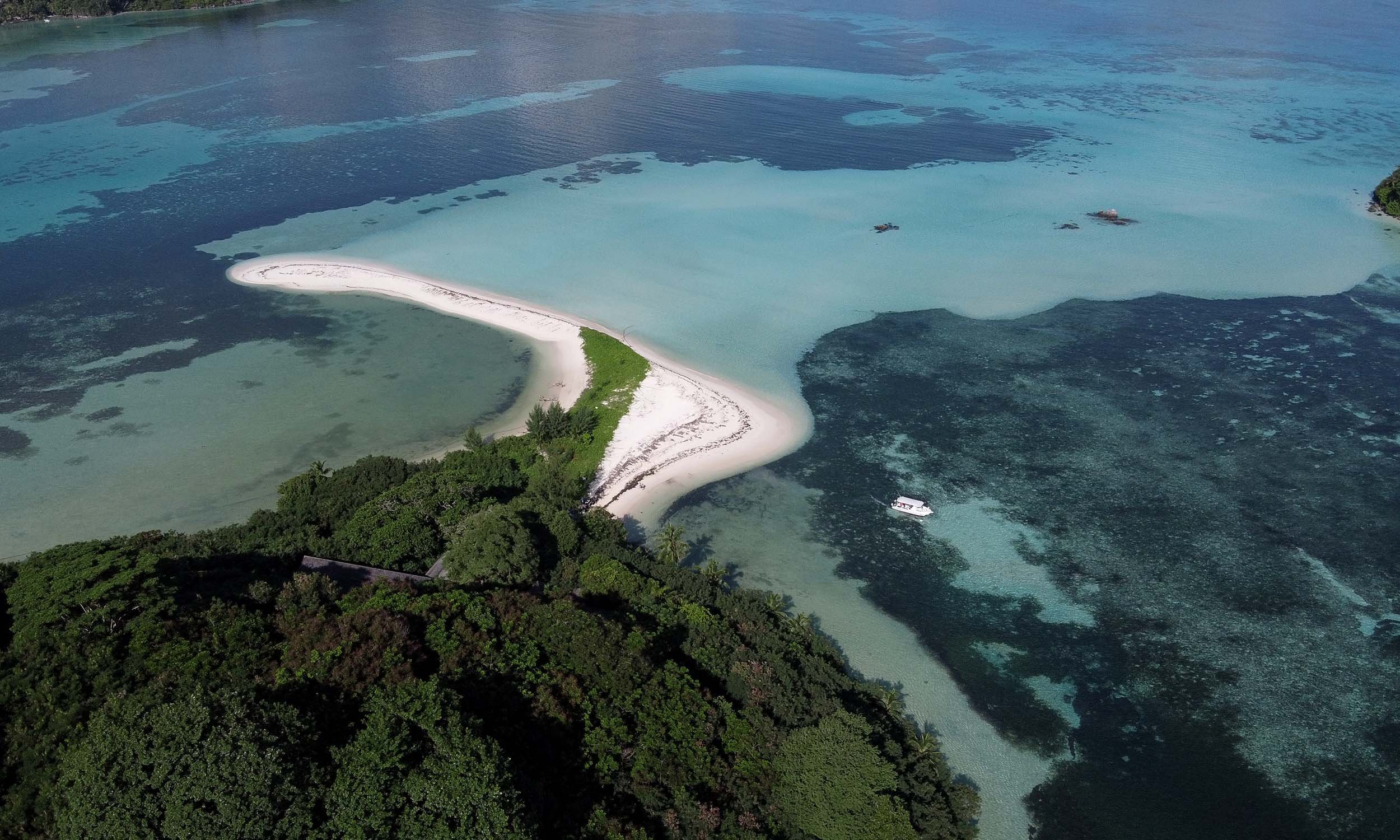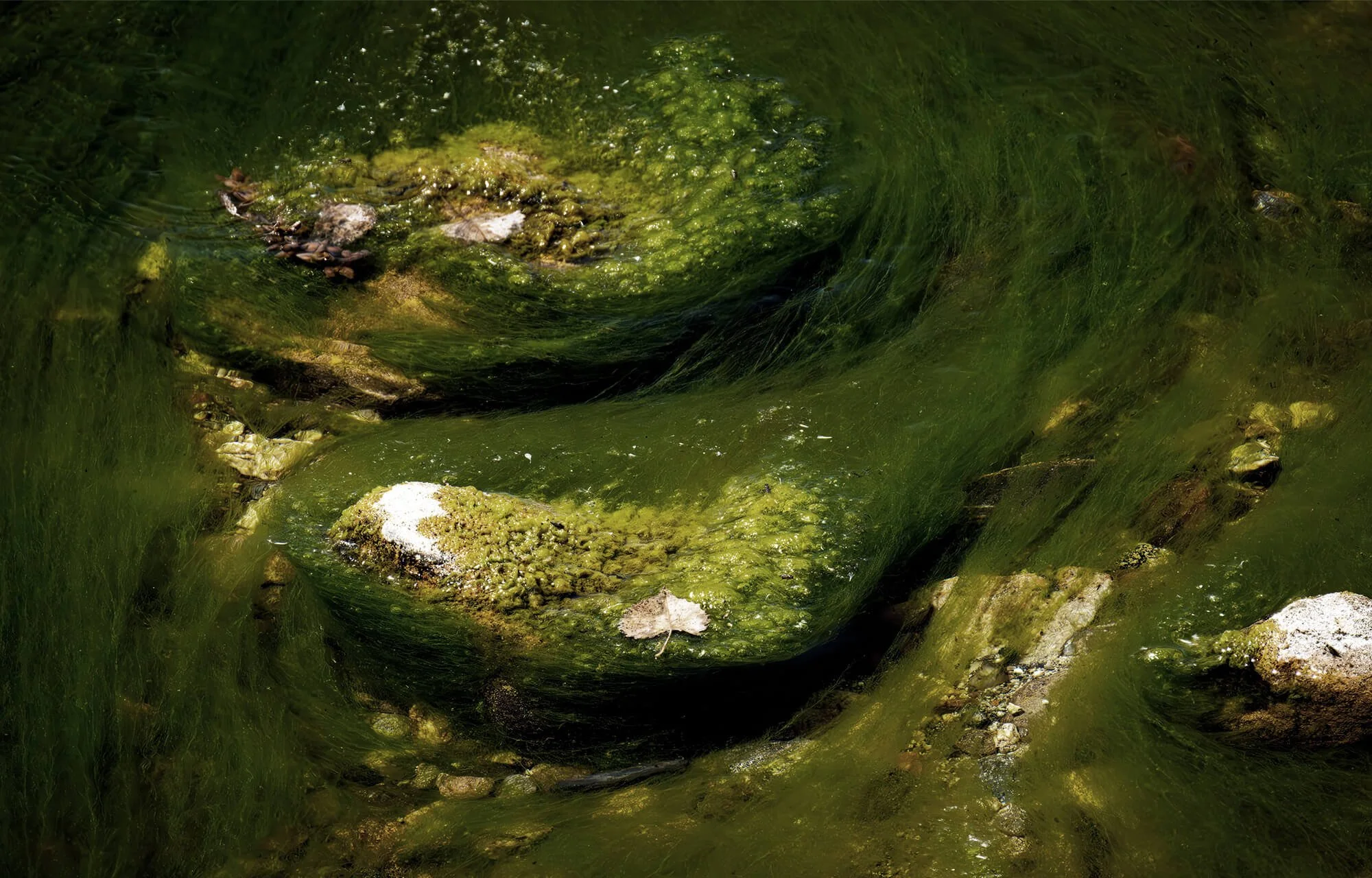7 Things You Can Do To Feel Less Bad About the Great Barrier Reef
One of the seven natural wonders of the world is dying before our eyes. Here are seven things you can do about it.
Credit: Wayne Levin
Our generation could be the last to coexist, if we could call it that, with the largest living structure on Earth. Last week scientists completed aerial surveys of the Great Barrier Reef, one of the seven natural wonders of the world, scoring 800 individual coral reefs across 8,000 km (4,970 mi). What they found was further gut-wrenching and heartbreaking confirmation of what many of those paying attention already feared: the Great Barrier Reef has reached “terminal stage.” This does not mean the reef is dead. It does mean the window for action to aid any chance of recovery is rapidly closing.
In just the last two trips around the sun, back-to-back mass bleaching events have put unprecedented stress on corals. Even in the absence of an El Niño event, this year’s bleaching was second in severity only to 2016.
With two-thirds (a 1,500 km/932 mi stretch) now affected by severe bleaching, there is due cause for despair. However, as thinking and feeling individuals capable of taking action and creating change, we have no excuse to surrender to it. Our situation is dire, but it’s not beyond repair. The absolute worst thing any of us can do right now is nothing.
How did the reef reach “terminal stage”? Warming and acidifying waters, population growth and coastal development, pollution in all its forms, mining activity, invasive species, overfishing, climate change: all of these are threats to the world's reefs, and all of them are driven by humans. Whether or not we are able to save the Great Barrier Reef, what we choose to do — or not to do — now will shape this planet for millennia. The current state of the reef is a blaring reminder of that fact. Our actions, no matter how small, make a difference. Indeed that’s how we got into this mess in the first place.
For yourself and posterity, here are seven things you can do now to feel a little better while making a difference for the seven seas — and especially the Great Barrier Reef.
Cut your plastic use.
Plastic pollution is not only unsightly, it’s persistent and deadly. Items like plastic bags and bottles used once and discarded can last indefinitely in the environment. In the oceans, they entangle, suffocate, and kill marine life, act as a transportation device for invasive species, introduce harmful synthetic chemicals to fragile ecosystems, and pass those chemicals back up the marine food web and into our own bodies. Furthermore, the plastics industry is a mammoth consumer of fossil fuels, guzzling as much oil each year as the entire aviation sector. A widespread transition away from a throwaway economy/society is in progress. You can make an immediate difference in the movement by avoiding single-use plastics. Some ideas for living the Parley AIR (Avoid, Intercept, Redesign) Strategy are located right here.
Bike, walk, or take public transportation.
In the U.S., 40% of all trips are less than two miles. If you have an alternate mode of transportation available to you (e.g. your legs, a bike, a skateboard), choose that route. Life’s about the journey, but if you need additional incentive to avoid that car trip or cab fare, know that for every gallon of gasoline burned, roughly 20 lbs of heat-trapping carbon dioxide are released into the atmosphere. Also worth noting: exercise releases endorphins. Bike to Work Week 2017 will be May 15-19, with Bike to Work Day on May 19. Mark your calendars.
Skip the meat.
Livestock farming produces 20-50% of all man-made greenhouse gas emissions, including carbon dioxide and methane, which has 20 times the heat-trapping potency of the former. One recent study found that going vegetarian or vegan is not only life-changing, but life-saving, stating that widespread adoption of a plant-based diet “could reduce global mortality by 6–10% and food-related greenhouse gas emissions by 29–70%, compared with a reference scenario in 2050.” If you can’t give up meat and dairy entirely, try eating less. It adds up. It matters. There’s a saying that a vegetarian driving a Hummer has a lower carbon footprint than a meat-eater on a bicycle. Now imagine that vegetarian on a bicycle (see above).
Choose local food.
It’s not just what you eat that matters, but where it comes from and how it gets to your plate. Not all plant-based diets are alike. In-season, locally grown produce has a lower carbon footprint than produce flown overseas to reach your supermarket aisle. It typically tastes better, too. What if we all measured and even labeled food miles and carbon footprints like we do nutritional facts? Maybe we’ll get there soon. In the meantime, shop farmers markets and choose products with familiar or nearby origins and minimal packaging. You’ll be healthier for it in the long run. The oceans, our planet’s largest carbon sink, will too.
Reconsider your seafood.
More than half this planet is considered high seas, open ocean that lies beyond any one country’s jurisdiction. In these areas, and in certain governed albeit under-patrolled waters, sea life is especially vulnerable to overexploitation. Rather than seeing fish for what they are — important members of a fragile ecosystem behind half our breathable oxygen — we commodify, market, and even rebrand them for short-term profits. 90% of big fish have disappeared since 1950, a span shorter than a lifetime. Illegal and unregulated fishing has a lot to do with that (and with human trafficking, sea slavery, and murder on the high seas). But how do you know if your fish is a crime fish? And how do you know if it’s full of synthetic chemicals? The scary truth is it’s hard to tell. According to one study, up to one in three fish imported to the U.S. may be linked to illegal activity. Another states that seafood eaters ingest up to 11,000 tiny pieces of plastic each year. Bon appétit.
Unplug idle electronics. They’re lying to you.
Even when in “off” or standby mode, plugged-in electronic devices use electricity. In the U.S. alone, where electricity production represents about 37% of all carbon dioxide emissions, approximately 25% of all residential energy consumption is used on devices in idle power mode. There is a very simple solution to this wasted energy, also called vampire electricity: unplug your gadgets and appliances. When you finish making coffee, unplug the machine. If you must iron a shirt, unplug the iron when you’re done. The benefits of this practice go far beyond their carbon saving potential to include things like peace of mind (assurance you won’t accidentally burn down the house) and thicker wallets; killing vampire electricity could slash your energy bill by 10%. Try it.
Get educated, stay inspired, and resist “bad news” fatigue.
Many people don’t realize that a coral reef is not a thing, but a living community thousands of years old, from ancestors hundreds of millions of years old. They are the most biodiverse and among the oldest ecosystems on Earth, surpassing even the rainforests. Although coral reefs cover only about 1% of the ocean floor, they are home to a quarter of all ocean species and play a vital role in maintaining the health and stability of the global marine ecosystem, a fragile interconnected web of life that make this planet habitable for humans. We need coral reefs more than we understand. Knowledge is power in the fight to save them, and it’s most effective when experienced and shared. Don’t just read a horrifying headline and move on with your life — dive into the science. Better yet, dive into the actual oceans. Then talk about it. It is so important that we normalize conversations about things that matter. Bringing it up in conversation does not make you a downer, it makes you an ocean champion.
Our collective impact as a species on this water-covered sphere of space rock is so profoundly and devastatingly intense, scientists have declared a new epoch: The Anthropocene, a.k.a. The Human Age. We've already made our mark on the fossil record, and it's not exactly worthy of pride. But it's not too late to change things. As the Great Barrier Reef and coral ecosystems of the world fade into near-lifeless skeletons, let’s not throw up our hands and allow the life and lessons they harbor to slip into oblivion. If we do, our kind won't be far behind them.
The list of ways and reasons to act is longer than the ocean is deep. And the time to actually act on them has never been more urgent. The human race faces some massive and large-scale challenges, but our species also has some special talents: big brains, compassion, empathy, creativity and beyond. We already have the tools. Now it’s up to every single one of us to use them.





















